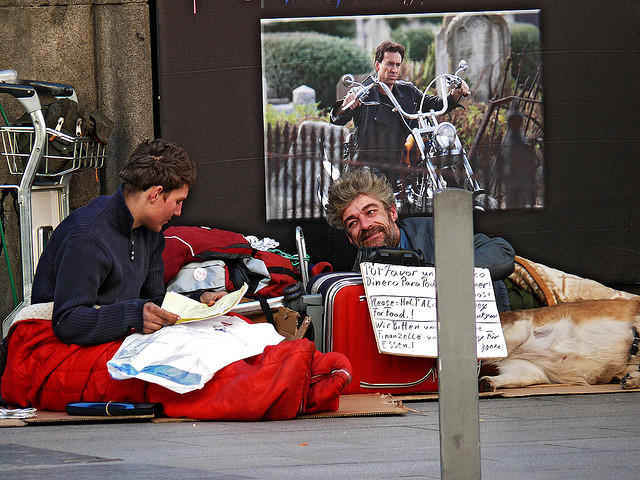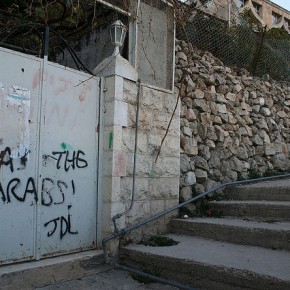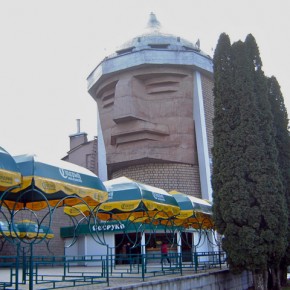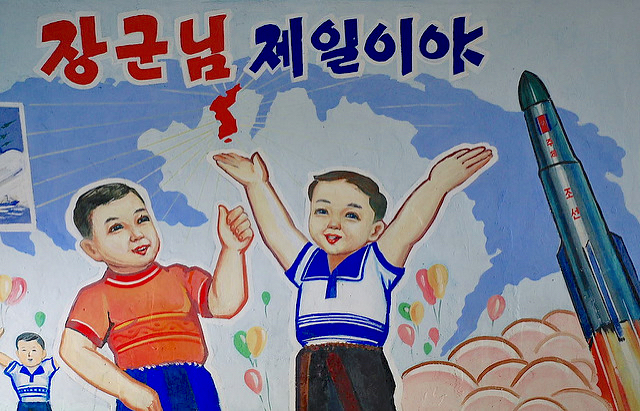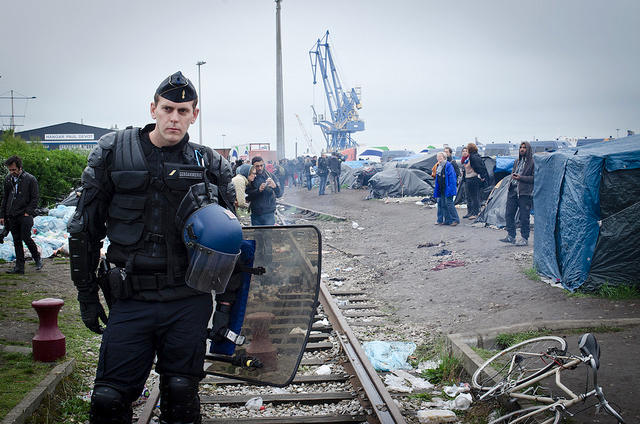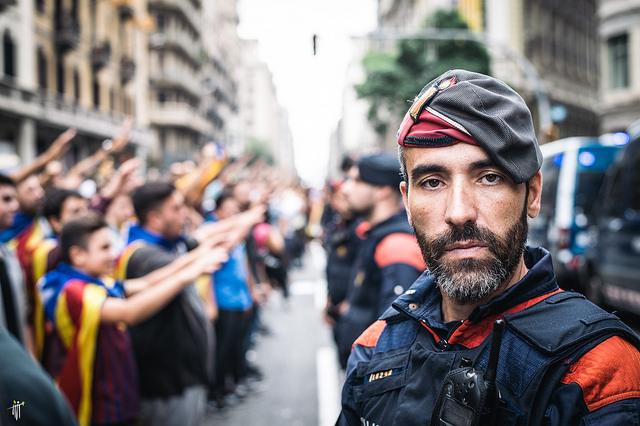The original title for Manuel Vázquez Montalbán’s detective novel, Off Side, is El delantero centro fue asesinado at atardecer which translates to “The center forward was murdered at dusk”. The title comes from a series of florid notes sent to FC Barcelona: “Because you use your centre forward to make yourselves feel like gods who can manage victories and defeats, from the comfortable throne of minor Caesars: the centre forward will be killed at dusk.”
Football fans reading this sort of thing today are sure to think of the strategy the Spanish national team’s manager Vicente del Bosque used, at times, on the road to winning Euro 2012. Compensating for the loss of their most reliable striker, David Villa, to injury and the poor form of their most flamboyant one, Fernando Torres, del Bosque tried a formation with six midfielders and no forwards. The nominal forward would play as a “False Nine” who moved from his usual position deeper into midfield. This approach reflects the continuing evolution of strategy in football. Where once five forwards were standard, nowadays you will usually see two forwards, or one, or even a False Nine, i.e. no forward at all.
Although it would be a major exaggeration to claim that this development means that the center forward position has been “murdered,” the trend it suggests resonates in interesting and unexpected ways with Montalbán’s book. FC Barcelona hires Pepe Carvalho, the detective featured in a long series of books by Vázquez Montalbán (who wrote many things besides detective stories.) Carvalho’s job is to find out who is behind those threatening letters being sent to the team, before a new signing for Barça, star English center forward Jack Mortimer, becomes a victim (for it is assumed Mortimer is the eventual target.)
As is often the case with good detective stories, we meet characters of varied social standing, along with a handful of Carvalho’s friends, all of whom are finely drawn. The characters end up being more important than the mystery. And one of the biggest characters in the book is Barcelona itself, and, by extension, Spain during the post-transition period after the death of Franco. The book was first published in 1989, during a time when Barcelona was preparing to host the 1992 Summer Olympics. Vázquez Montalbán was a native of Barcelona, and he writes about his city with a blend of nostalgia and a dollop of cynicism tied to the ways democratic capitalism is changing his city and his country. Thus, the Barcelona of the novel, with all of the construction in advance of the Olympics (and the accompanying destruction of poor sections of the city,) represents Spain in the middle of its emergence into the greater European world after Franco.
FC Barcelona, of course, also had (and has) symbolic importance. As the capital of Catalonia, the city of Barcelona loomed large as Franco tried to subsume regional cultures and languages under an overarching Spanish tent. As Vázquez Montalbán himself noted, to become a fan of FC Barcelona was a good way to show allegiance, in public, to the Catalan cause. Barça’s motto, “More than a club”, reflects this. Vázquez Montalbán referred to Barça as “the epic weapon of a country without a state or army.”
The mingling of nostalgia and cynicism gives Off Side an intriguing feel. As Carvalho contemplates the building of Olympic facilities, he says, “The new city would no longer feel like the city he knew,” and his nostalgia even carries to the upper classes: “Rich people with guilty consciences seemed to be a thing of the past now; perhaps the market had been cornered by those who have guilty consciences about not being rich.” Given the current state of economic affairs in Spain, Vázquez Montalbán seems almost prescient with this observation. Even as Spain’s position at the top of the world of football is solidified, the Spanish people are suffering. In football, the world wants to be like Spain, while in the economic world, Spain is asked to follow the demands of others.
Carvalho’s nostalgia is balanced by the fact that he had been a political prisoner under Franco. And many of Carvalho’s observations of Barcelona’s decline (in his eyes) are on target. He isn’t thinking back to a time when everything was good as much as he is bemoaning the negative aspects of “freedom” under a constitutional monarchy, where the strong can still swallow the weak. This is not the typical nostalgia for a better time, but rather the realization that there was a time when one could hope for a better future; now that the future has become the present, Carvalho knows that some things haven’t changed in the right ways.
Vázquez Montalbán also allows his characters time for plenty of soap-box speechifying. The mystery stops in its tracks on those occasions, but since the mystery is, oddly for a detective story, in many ways the least important aspect of the book, these pauses are enlightening more than they are annoying. Vázquez Montalbán uses these speeches to deepen our understanding of the various characters as they make their positions known. At one point, a PR man for the club explains why he finds his job interesting, in the process giving us insight into his character while also making points about the place of a club like Barça in Spanish culture, and the ideas of the bosses who run the club. “An organization like this has an important cultural side to it. It is something consciously created, an idea embodied in a mass of people, and the way in which it develops depends on who is there to mould it. The masses are basically stupid, and the footballing public is as neurotic and child-like as any collective subject you care to name.”
A comparison of this sentiment to that of those, like Vázquez Montalbán, who see Barça as an epic weapon, offers two differing explanations for what is meant by “More than a club.” The latter sees the club’s power coming from the people filling the stadium; the former assumes that the illusion of power is created by those at the top. While Vázquez Montalbán treats the average person in the novel with respect, if by no other method than by giving his characters depth, so that none of them are merely “the masses,” the changes he describes in Off Side show how, no matter what feelings one has towards the cultural side of FC Barcelona, the powerful are usually able to mould their world to fit their desires. This may be the reason why Carvalho’s nostalgia is so complex: he once hoped for change, but things are not better.
Besides Carvalho, other characters also experience nostalgia, but their nostalgia reflects their personal histories. So it isn’t just the anti-Fascist Carvalho who looks to the past, but also supporters of Franco, prostitutes, landladies, people from all walks of life.
One such character, a shoe shiner named Bromide, complains about the influx of foreigners into Spain, saying of “the new class of criminals”, “There’s not a single Spaniard among them!” He and Carvalho can still talk about the past, even though, Bromide says, Carvalho is “a commie — or used to be a commie — because at least you remember how things were.” Now, “people have lost the ability to remember.” Bromide has the traditional feeling of nostalgia for a time when things had a certain order, and he sees value in that nostalgia, because without remembering the past, even his low status is unconnected to any previous accomplishments. “Before they used to treat me with respect, because … if you were one of Franco’s soldiers, it meant something. But nowadays the gangsters and the police don’t know or care what happened in the old days. They have no memory.”
Reading Off Side in 2012 is a bit nostalgic. In 1989, the book’s characters felt nostalgia, positive or negative, for the Franco era. Today, with Spain’s struggling economy, it is easy to feel nostalgic for the very era in which Off Side takes place. In this regard, the novel’s delayed appearance in English can be seen as an advantage, a way of extending its message to new circumstances which, nevertheless, are rooted in the ones the story covers.
By the end of the novel, only the powerful have much to be happy about. A center forward is murdered, which affects his club, which affects Barcelona, even though it’s not the center forward you expected. His death serves the powerful, rather than hurting them. A man and a woman, drug addicts, are arrested for the murder, and while they are innocent of that crime, the man has a rich father, while the woman has no connections, so he’ll walk and she’ll go to prison. The men making money behind the renovations for the Olympics are sitting pretty. Meanwhile, the small, lower-division club of the murdered center forward, which lies on the outskirts of Barcelona, goes under, a disaster consciously created by those who want to renovate the land for profit.
Franco is gone, but the hoped-for nirvana never arrived. Spain has become a False Nine, resembling what came before, but with the man at the top, the outward representation of minor Caesars, being subsumed into the rest of the team. Meanwhile, those who mould the masses remain in place, as powerful ever.
Photograph courtesy of Javier Sánchez. Published under a Creative Commons license.
